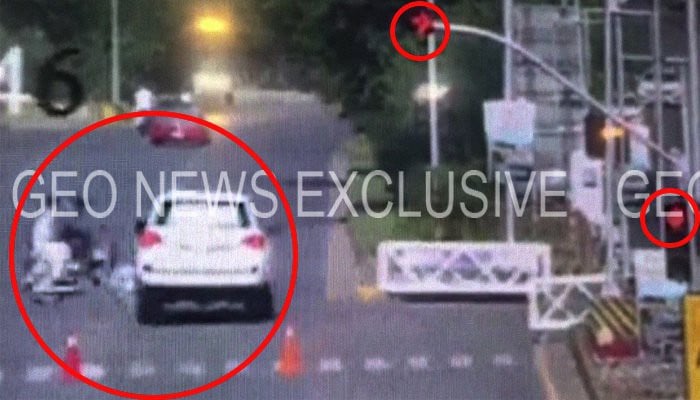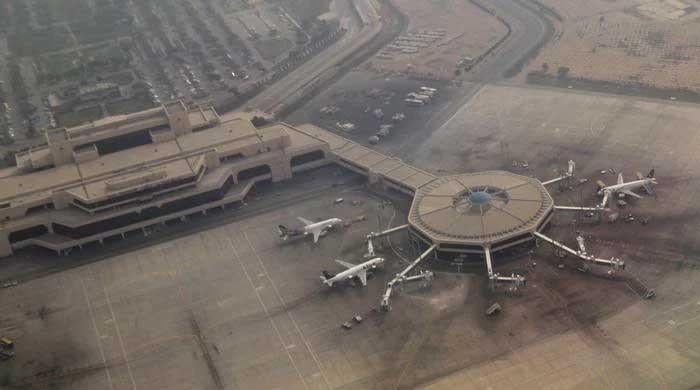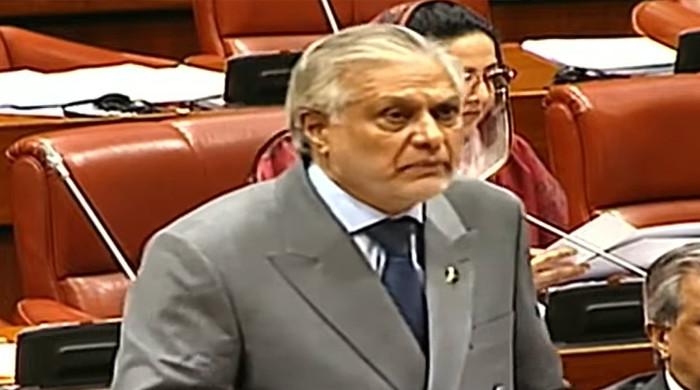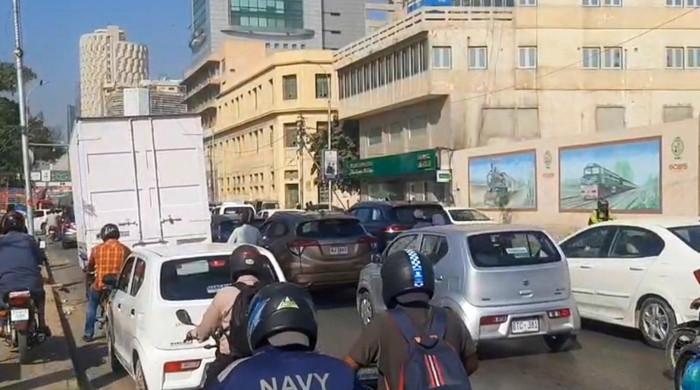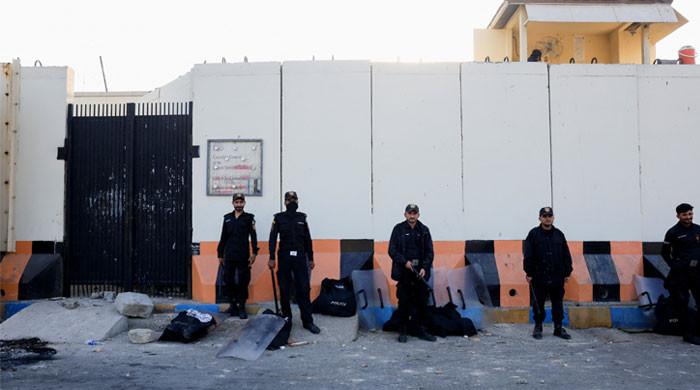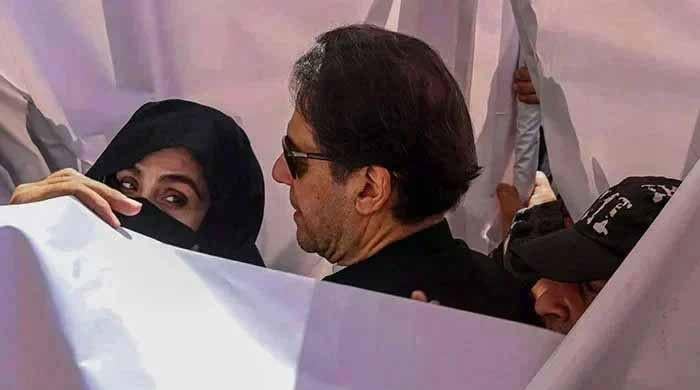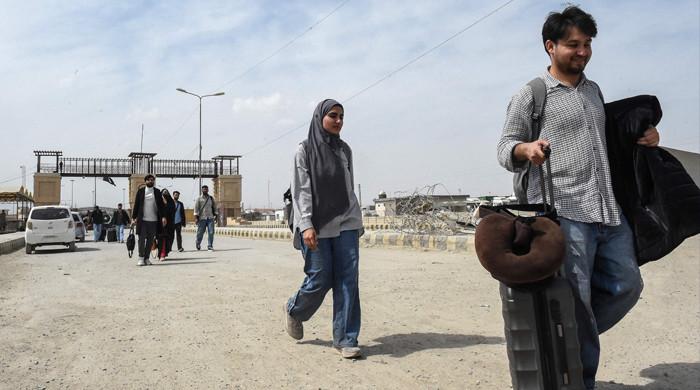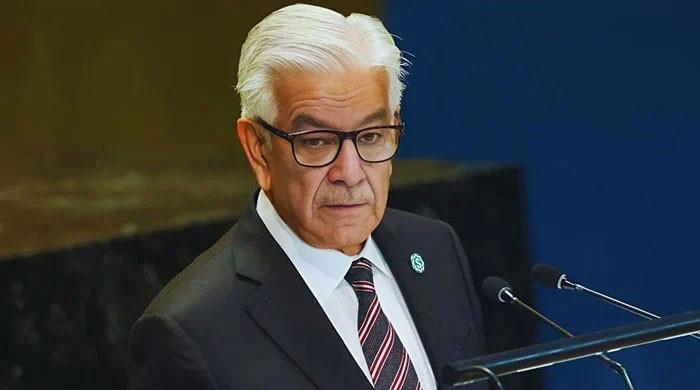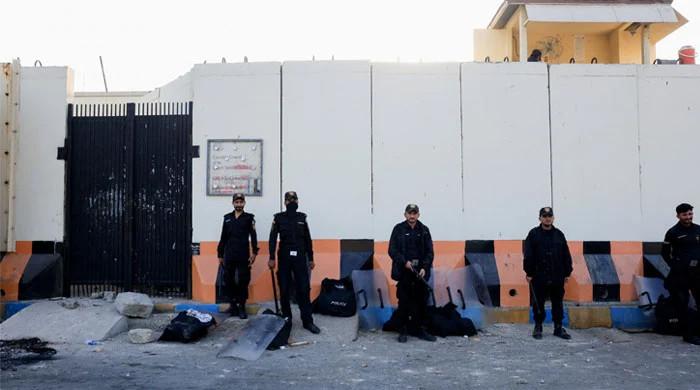US might impose travel restrictions on Pakistani diplomats
The warning has nothing to do with the fatal road accident last week when a Pakistani citizen was killed by a US diplomat, says an official
April 11, 2018
WASHINGTON: The Trump administration has communicated to the Pakistani government that its diplomats stationed here could face restrictions in their travel movement if similar limitations on American diplomats in Pakistan are not eased up, a senior official told Geo News.
Requesting anonymity, the official said that the warning came out a few weeks ago and the two sides have been discussing the proposal and its possible outcome since then. The official also insisted that the warning had nothing to do with the fatal road accident last week when a Pakistani citizen was killed by a US diplomat.
The full course of the communication has not been shared in detail, but the official revealed that the diplomatic staff would need permission at least five days ahead from US authorities to travel outside of the imposed 25-mile radius. The new restrictions could take effect from May 1.
The move, if followed, will push diplomatic relations between the two countries to a new low.
The US Department of State was approached for comment, but the spokesperson, without denying or giving out any specifics, said: "We have no comment."
The senior official also added that American staffers in Pakistan are not permitted to move around freely because of serious security considerations.
The two capitals, the official maintained, have different dynamics. The official was of the view that the friction stems from the issue of allowing short-duration visas to American officials and businessmen.
The two governments intend to resolve the matter in coming weeks and would like to reach a measure on the principle of reciprocity, the official said.
It would be the first time for Pakistani diplomats serving in America to face such travel regulations, whereas past US government have practiced such codes on Russian and Chinese officials.
On Saturday, the vehicle of a defence attaché at the US embassy in Islamabad, Joseph Emanuel Hall, ran a red light and rammed into a motorcycle in the federal capital on Saturday afternoon, killing one man on the spot and injuring another.
Motorcyclist Ateeq Baig, a resident of the city's Tilhar suburb, died on the spot, while he was en route to his office with his cousin Raheel riding pillion.
A day later, US Ambassador to Pakistan David Hale was summoned to Pakistan's Foreign Office in Islamabad to protest the killing.
Pakistan's Foreign Secretary Tehmina Janjua recorded strong protest with the US envoy, who expressed grief over the incident and assured full cooperation from the US embassy in investigating the incident, said a Foreign Office spokesman.
“Justice will take its course in accordance with the law of the land and the Vienna Convention on Diplomatic Relations, 1961," the Foreign Office said in a statement issued later.
In a tweet posted later on Sunday, the US embassy also expressed sympathy with the family of the deceased.
"Embassy officials are cooperating with local authorities who are investigating the accident," it added.
Relations between the United States and Pakistan have been strained in recent months over Afghanistan.
Earlier in a tweet on January 1, Trump claimed that the United States had foolishly given Pakistan over $33 billion in aid over the last 15 years.
He also accused Pakistan of thinking US leaders to be fools. "They give safe havens to the terrorists we hunt in Afghanistan, with little help. No more!"
Trump’s tweet drew a strong reaction from Pakistan. Foreign Minister Khawaja Asif said Pakistan has already refused to 'do more' for the United States.
"We have already told the US that we will not do more, so Trump’s ‘no more’ does not hold any importance," Asif told Geo News.
"Pakistan is ready to publicly provide every detail of the US aid that it has received," the minister added.
